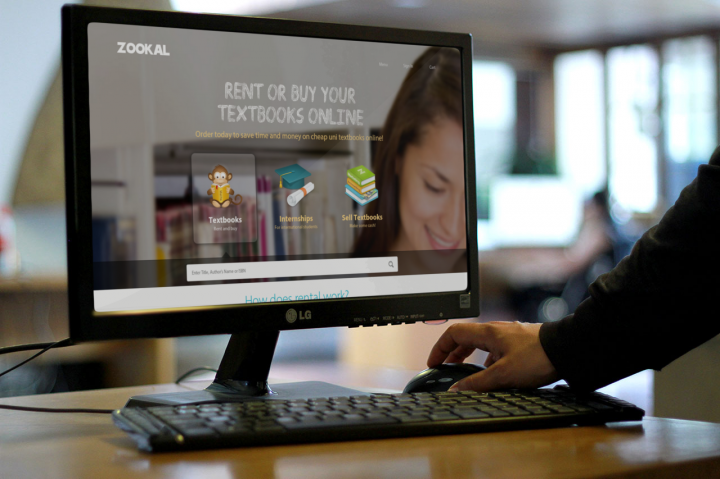Unveiling Top Textbook Companies: Innovators in Education

textbook companies In the ever-evolving world of education, textbooks play an indispensable role in shaping the minds of future generations. With the rise of digital learning and innovative teaching methods, textbook companies have had to adapt and innovate to meet the changing demands of students and educators alike. This article delves into the top textbook companies that are leading the charge in educational innovation, offering a blend of traditional and digital resources to enhance learning experiences worldwide.

The Evolution of Textbook Companies
A Historical Perspective
The history of textbook companies dates back to the early days of formal education. Originally, textbooks were simple compilations of knowledge, handwritten and used by a select few. With the invention of the printing press, the production of textbooks became more widespread, making education accessible to a broader audience. Over the centuries, textbook companies have evolved, incorporating new technologies and pedagogical approaches to create comprehensive educational resources.
The Digital Revolution
The advent of the digital age has revolutionized the textbook industry. Traditional print textbooks are now complemented by digital versions, e-books, and interactive online platforms. Textbook companies have embraced this change, offering a wide range of digital products that cater to the needs of modern learners. These innovations have not only made learning more interactive and engaging but also more accessible and affordable.
Leading Textbook Companies in the Industry
Pearson Education
Pearson Education is a global leader in educational publishing. With a rich history dating back to the 19th century, Pearson has continually adapted to the changing landscape of education. The company’s extensive catalog includes textbooks for all levels of education, from primary school to higher education. Pearson is renowned for its high-quality content, innovative digital solutions, and commitment to improving learning outcomes.
McGraw-Hill Education
McGraw-Hill Education is another titan in the world of textbook companies. Founded in 1888, McGraw-Hill has a long-standing reputation for excellence in educational publishing. The company offers a wide range of textbooks, digital learning platforms, and adaptive learning technologies. McGraw-Hill’s ALEKS (Assessment and Learning in Knowledge Spaces) system is a prime example of its commitment to personalized learning and student success.
Cengage Learning
Cengage Learning is a cutting-edge player in the field of educational publishing. Known for its innovative approach to learning, Cengage offers a vast array of textbooks, e-books, and digital learning tools. The company’s Cengage Unlimited subscription service provides students with affordable access to a comprehensive library of learning resources, making education more accessible and cost-effective.
Houghton Mifflin Harcourt (HMH)
Houghton Mifflin Harcourt (HMH) is a distinguished name in educational publishing, with a history spanning over 185 years. HMH specializes in K-12 education, providing textbooks, instructional materials, and digital learning solutions. The company’s commitment to fostering a love of learning and supporting educators has made it a trusted partner in classrooms across the globe.
Wiley
Wiley is a renowned publisher in the academic and professional fields. With a focus on higher education, Wiley offers textbooks, online learning platforms, and research resources. The company’s WileyPLUS platform is a popular choice among educators, providing an integrated suite of tools for teaching and learning. Wiley’s dedication to advancing knowledge and learning has made it a respected name in the industry.
Innovative Approaches in Textbook Publishing
Digital and Interactive Learning
One of the most significant trends among textbook companies is the shift towards digital and interactive learning. Digital textbooks and e-books offer a range of features that enhance the learning experience, such as interactive content, multimedia elements, and built-in assessments. These tools engage students in a more dynamic and immersive way, making learning more enjoyable and effective.
Adaptive Learning Technologies
Adaptive learning technologies are transforming the way students learn. These technologies use data and algorithms to tailor the learning experience to each student’s needs. Textbook companies like Pearson, McGraw-Hill, and Cengage are at the forefront of this innovation, developing platforms that adjust the difficulty of content based on a student’s performance. This personalized approach helps students master concepts at their own pace, improving learning outcomes.
Open Educational Resources (OER)
Open Educational Resources (OER) are freely accessible and openly licensed educational materials. Many textbook companies are incorporating OER into their offerings, providing affordable alternatives to traditional textbooks. This trend is particularly important for higher education, where the cost of textbooks can be a significant financial burden. By offering OER, textbook companies are helping to make education more equitable and accessible.
Integration with Learning Management Systems (LMS)
To streamline the educational process, many textbook companies are integrating their products with Learning Management Systems (LMS). This integration allows educators to seamlessly incorporate textbooks and digital resources into their teaching platforms. It also provides students with a centralized location for all their learning materials, making it easier to manage their studies.
The Impact of COVID-19 on Textbook Companies
Accelerated Digital Transformation
The COVID-19 pandemic has accelerated the digital transformation in education. With the sudden shift to remote learning, the demand for digital textbooks and online learning tools surged. Textbook companies responded by expanding their digital offerings and providing additional support to educators and students. This rapid adaptation has reinforced the importance of digital resources in modern education.
Challenges and Opportunities
While the pandemic posed challenges for textbook companies, it also presented opportunities for innovation. Companies had to address issues such as digital accessibility, connectivity, and student engagement in a virtual environment. By rising to these challenges, textbook companies have developed new solutions and strategies that will continue to benefit education long after the pandemic.
The Future of Textbook Companies
Embracing Artificial Intelligence (AI)
Artificial Intelligence (AI) is set to play a significant role in the future of textbook companies. AI-powered tools can analyze student data to provide insights into learning patterns, identify areas where students are struggling, and offer personalized recommendations. This technology has the potential to revolutionize education by making learning more efficient and tailored to individual needs.
Enhancing Collaboration and Interactivity
Future innovations in textbook publishing will likely focus on enhancing collaboration and interactivity. Virtual reality (VR) and augmented reality (AR) technologies can create immersive learning experiences, allowing students to explore complex concepts in a hands-on way. Collaborative tools and platforms will enable students and educators to connect and work together more effectively, regardless of geographical location.
Sustainability and Eco-Friendly Practices
As awareness of environmental issues grows, textbook companies are increasingly adopting sustainable and eco-friendly practices. Digital textbooks reduce the need for paper and printing, minimizing the environmental impact. Additionally, companies are exploring ways to make their supply chains more sustainable and reduce their carbon footprint. This commitment to sustainability reflects the broader societal shift towards more responsible and ethical practices.
textbook companies
Textbook companies are pivotal in shaping the future of education. By embracing innovation, leveraging technology, and adapting to the changing needs of students and educators, these companies are driving the evolution of learning. From digital textbooks and adaptive learning technologies to sustainable practices and AI-powered tools, textbook companies are at the forefront of educational innovation.
As we look to the future, the continued collaboration between textbook companies, educators, and students will be essential in creating a more inclusive, effective, and engaging educational landscape. By staying ahead of trends and investing in new technologies, textbook companies will continue to play a vital role in fostering academic success and lifelong learning.







